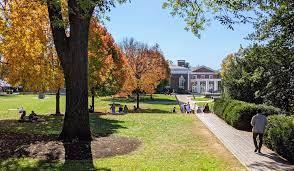

Creative Writing
- [email protected]
- (434) 924-6074
The UVA Creative Writing Program offers one of the best MFA programs in the country, along with undergraduate English concentrations in poetry and literary prose and elective coursework.
Explore Creative Writing Events
Creative writing stories.
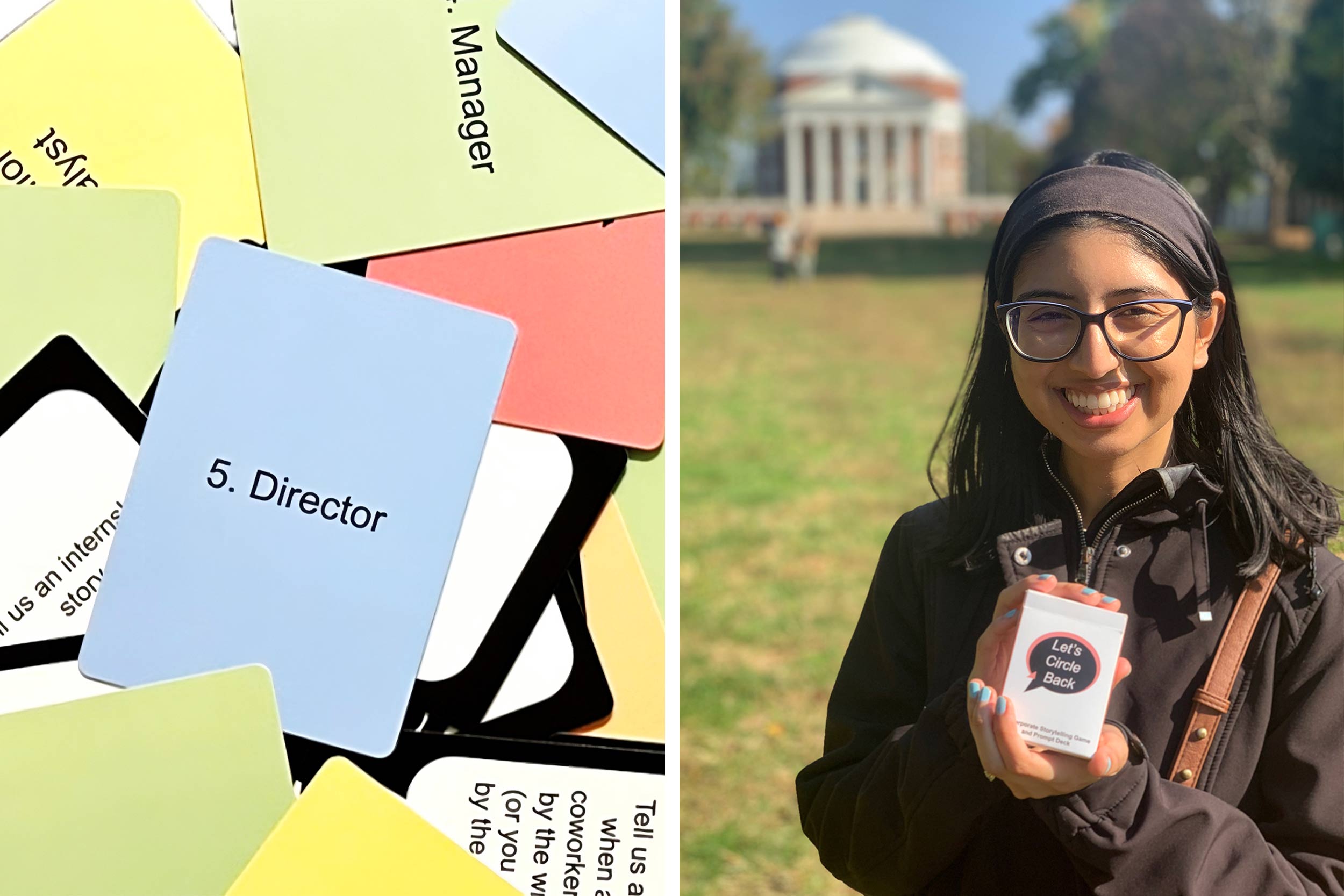
Let’s Circle Back, the Ice-Breaking Office Game a UVA Alumna Created
Let’s Circle Back is a corporate storytelling game and prompt deck that’s designed to break the ice with new employees or enhance the workplace culture within a veteran staff.
https://news.virginia.edu/content/lets-circle-back-ice-breaking-office-game-uva-alumna-created
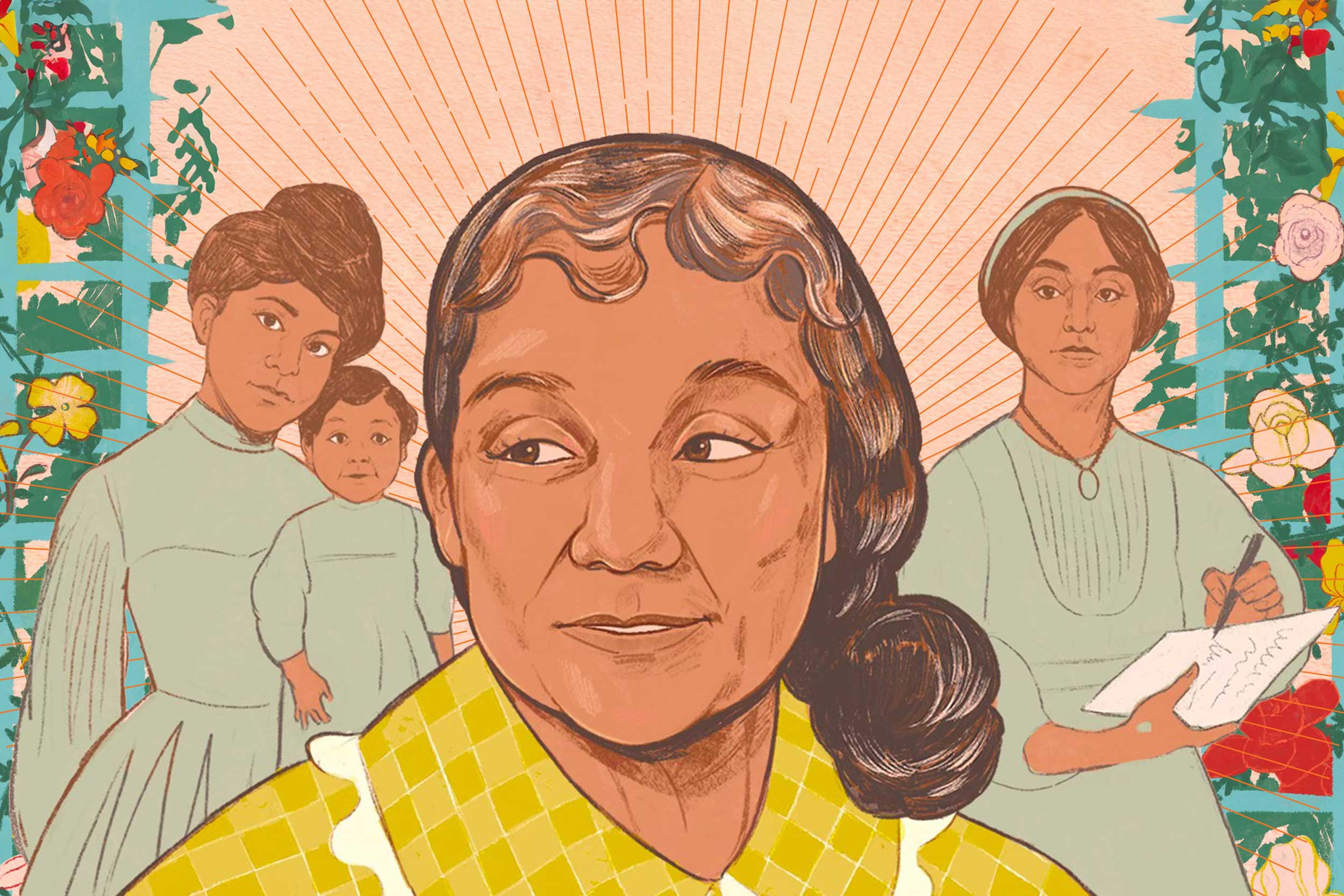
Through a Harlem Renaissance Poet’s Garden, and Into Her Work and Life
The exhibition, titled “Anne Spencer: I Am Here!” showcases the life and work of Lynchburg poet Anne Spencer.
https://news.virginia.edu/content/through-harlem-renaissance-poets-garden-and-her-work-and-life
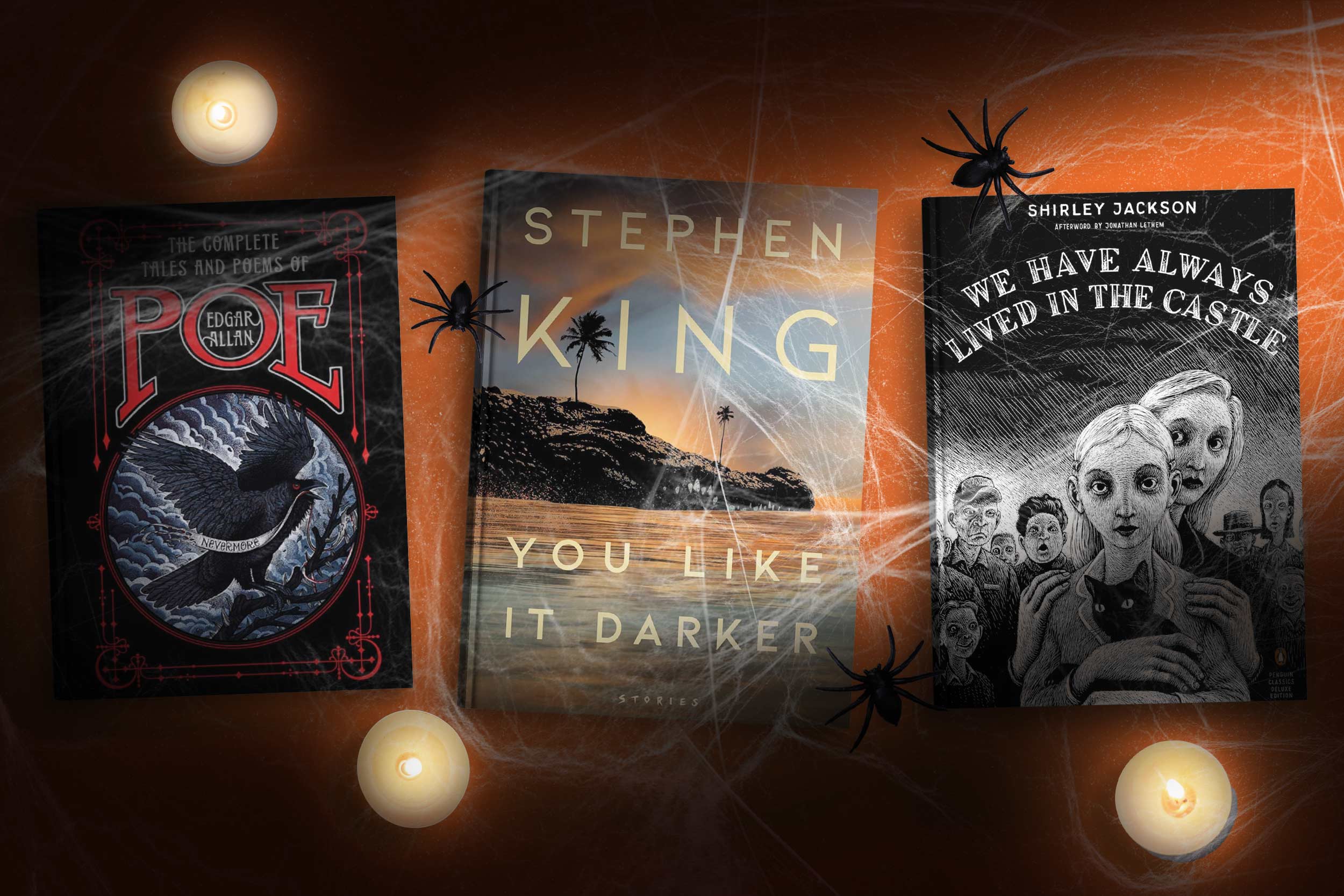
This Halloween, Curl Up With These Haunting Reads From UVA Library
This scary season, if you find yourself on a midnight dreary without a quaint and curious volume of forgotten lore to ponder, the University of Virginia Library has recommendations for you.
https://news.virginia.edu/content/halloween-curl-these-haunting-reads-uva-library
219 Bryan Hall University of Virginia P.O. Box 400121 Charlottesville, VA 22904-4121 (434) 924-7105 Fax: (434) 924-1478 http://www.engl.virginia.edu/graduate
Degree Requirements
Master of fine arts.
Of the 48 credits required for the degree, students are expected to complete a minimum of 24 credits of graded coursework, including twelve credits of ENCW 7610 (MFA Fiction Workshop) or ENCW 7310 (MFA Poetry Workshop) and twelve credits of graduate literature courses in the Department of English, approved graduate courses in other departments and schools at the University, or independent study. Students are expected to complete a thesis project and pass an oral examination.

The Writing and Rhetoric Program
Search form.
- FWR Placement
- Fall 2024 Courses
- Spring 2025 Courses
- Learning Goals
- Faculty Seminar
Welcome to the Writing Center
The UVa Writing Center offers in-person and synchronous online and asynchronous consultations. If you are a returning user who is ready to schedule a consultation, go to our scheduling website . If you are new to the Writing Center, read on for answers to frequently asked questions.
Who Can Use the Writing Center? The resource is available for use by all current UVa students, regardless of year, school, or major.
What Kind of Support Can Writing Consultants Provide?
- Consultants can advise on all stages of the writing process: brainstorming, drafting, revision, argument structure, editing, and other concerns.
- Consultants can help with any kind of writing : essays for classes, conference papers, dissertations/theses, cover letters for applications, personal statements, resumes, etc.
- Consultants can work with native speakers of English and with English-language learners; several of our tutors have specialized training in ESL.
Please note: consultants cannot proofread or edit for you. They also cannot help students with take-home exams unless the instructor has given explicit permission.
How Do I Schedule a Consultation? You will need an account in our scheduling system. Once you have an account, you can log in, choose a day and time, and schedule an appointment. Students can register for one 25-minute appointment or two back-to-back 25 minute appointments per day. One day before your appointment, you will receive an email reminder.
Where Do I Go for My In-Person Consultation? If you chose an in-person consultation, you schedule it at one of our in-person sites: 314 Bryan Hall, Clemons 2nd Floor, the Multicultural Student Center, or JPJ Academic Center (for student-athletes).
What If I Need an Online Consultation? Many of our consultants can meet with students online if necessary; you can select an online appointment at the point of booking. To connect with the consultant, you will need a device that can connect to the Internet (computer, laptop, notepad--a phone is not recommended) and a reliable high-speed Internet connection. When it is time for your appointment, log in to https://virginia.mywconline.com , double-click on your appointment, and click "Start or Join Online Consultation." A screen will pop up that provides further instructions, and your tutor will be waiting to chat with you. In case of glitches within the system or factors beyond the student's or consultant's control, the consultant and the student can choose an alternative way to “meet” online: Google Hangouts, FaceTime, Skype, Zoom, phone conversation, etc.
What Happens in a Consultation? Whether online or in-person, you and the consultant will talk about your work. A consultation is a collaborative experience in which you work on your paper with the consultant’s guidance; please do not expect that the consultant will "fix" your paper for you. Together you will read through your writing and discuss ways to develop your ideas and strengthen your work. You may make changes to your writing during the session or take notes for later. At the end, your consultant will write up a brief summary of their main suggestions and email that to you. When an online session ends, the chat transcript and whiteboard text from an online consultation will be saved, and you will be able to return to the appointment to view those documents later.
What Is Asynchronous Response? Asynchronous Response is an option where writers can upload their work, along with a detailed list of concerns and the guidelines/rubric for the assignment, and a consultant will respond within 48 hours with comments sent back to the writer in an email attachment. Students must schedule their consultations at least 48 hours in advance of when they need the feedback. To schedule an Asynchronous Response, choose the "Asynchronous Response" schedule.
Visit our website for more information and for resources to help you become a more confident, capable writer!
Questions? Contact Claire Chantell .

Search form
Department of english.
- Creative Writing >
- Writing and Rhetoric >
- Graduate Faculty
- General Faculty
- Affiliated Faculty
- Research Associates
- Graduate Students
- Emeritus Faculty
Publications
- The English Major
- Distinguished Majors
- Modern and Global Studies
- Area Program in Literary Prose Writing (APLP)
- Area Program in Poetry Writing (APPW)
- Medieval and Renaissance Studies
- The English Minor
- Minor in Public Writing and Rhetoric
- BA/MA Program
- Careers in English
- Study Abroad
- Want to Teach English?
- Admissions Procedures
- Financial Aid
- Want to teach English?
- Concentration in Teaching Literature and Writing
- PhD Requirements
- Orals Lists
- Placement Information and Help for Job Seekers

Statements Against Racism
Uva in solidarity with victims of anti-asian violence, from the modern language association, from ian baucom, executive vice president and provost.

ACCOLADES: ‘MILESTONE, NOT TOMBSTONE,’ DOVE SAYS OF LIFETIME HONOR

Faculty Seminar on the Teaching of Writing Transforming Undergrad Courses

Undergraduate Program
Graduate program, spring 2025 courses, anger, revolution, and romanticism, the contours of masculine desire, the cambridge companion to postcolonial poetry, irene albar. novela cubana (1885, 1886) por eusebio guiteras. edición facsimilar, cross-cultural harlem: reimagining race and place, byron: a life in ten letters, poetry and the built environment: a theory of the flesh of art, brian teare wins william carlos williams award.
News & Announcements
April 24, 2024, april 11, 2024, december 6, 2023, november 30, 2023.

The Cambridge History of World Literature

Bright: A Memoir

Languages of Jewish Cultures: Comparative Perspectives

Accented America: The Cultural Politics of Multilingual Modernism

Cambridge Companion to the American Modernist Novel

Cambridge Companion to 21st Century American Fiction

The Age of Guilt: The Super-Ego in the On-line World

Permanent Visitors
Further Interpretations of Real-Life Events

The Silent History

Small Pieces
The Garden Politic: Global Plants and Botanical Nationalism in Nineteenth-Century America

Elusive Kinship: Disability and Human Rights in Postcolonial Literature

Playlist for the Apocalypse

Sissy Insurgencies: A Racial Anatomy of Unfit Manliness

On Not Knowing: How to Love and Other Essays

Song of Ourselves: Walt Whitman and the Fight for Democracy

Realist Critiques of Visual Culture: From Hardy to Barnes

Madrigalia: New & Selected Poems

Paradise Close

Civil War Witnesses and Their Books: New Perspectives on Iconic Works

The Generals' Civil War: What Their Memoirs Can Teach Us Today

The Gifted School

The Fetters of Rhyme: Liberty and Poetic Form in Early Modern England

Book Traces: Nineteenth-Century Readers and the Future of the Library

The Latino Continuum and the Nineteenth-Century Americas: Literature, Translation and Historiography

Poetry in a Global Age

The New American

Best New Poets 2020: 50 Poems from Emerging Writers

More Truly and More Strange: 100 Contemporary Self-Portrait Poems

Grammars of Approach: Landscape, Narrative, and the Linguistic Picturesque

Writing Democracy: The Political Turn in and Beyond the Trump Era

The Room Where I Was Born

Companion Grasses
The empty form goes all the way to heaven.

Doomstead Days

Fort Red Border

Hymn for the Black Terrific

White Blood: A Lyric of Virginia

Meander, Spiral, Explode: Design and Pattern in Narrative

Civil War Writing: New Perspectives on Iconic Texts

Writing Communities

Circulating Communities: The Tactics and Strategies of Community Publishing

Listening to Our Elders: Working and Writing for Change

The Best of the Journals in Rhetoric and Composition, 2017

The Best of the Journals in Rhetoric and Composition, 2015-2016

The Best of the Independent Journals in Rhetoric and Composition, 2014

The Best of the Independent Journals in Rhetoric and Composition, 2013

The Best of the Independent Journals in Rhetoric and Composition, 2012

The Best of the Independent Rhetoric and Composition Journals, 2011

The Best of Independent Rhetoric and Composition Journals, 2010

Gravyland: Writing Beyond the Curriculum in the City of Brotherly Love
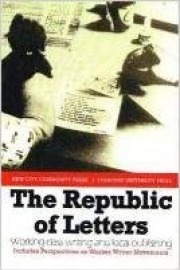
The Republic of Letters: Working Class Writing and Local Publishing

Class Politics: The Movement for the Students' Right to Their Own Language (Refiguring English Studies)

Rhetorical Healing: The Reeducation of Contemporary Black Womanhood

Rhetoric in the Flesh: Trained Vision, Technical Expertise, and the Gross Anatomy Lab

David Jones on Religion, Politics, and Culture: Unpublished Prose
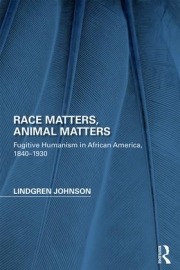
Race Matters, Animal Matters: Fugitive Humanism in African America, 1840-1930
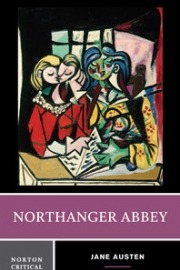
Northranger Abbey: Norton Critical Edition

In the Mood: Special Issue of New Literary History

Experimental Writing in Composition: Aesthetics and Pedagogies

The Brick House
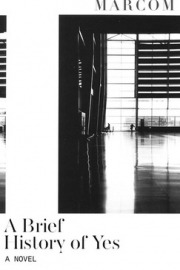
A Brief History of Yes
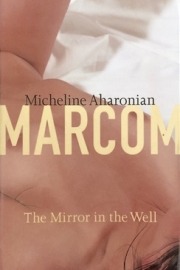
The Mirror in the Well
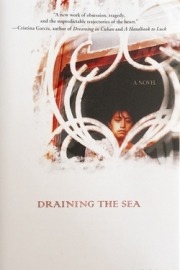
Draining the Sea
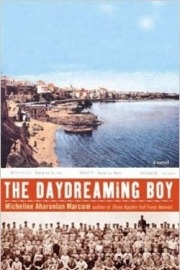
The Daydreaming Boy
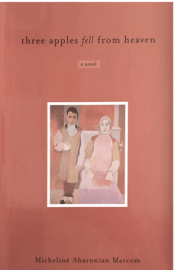
Three Apples Fell From Heaven

Caste, Colonialism and Counter-Modernity: Notes on a Postcolonial Hermeneutics of Caste

Edward Said: The Legacy of a Public Intellectual
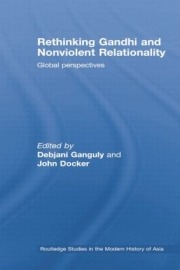
Rethinking Gandhi and Nonviolent Relationality: Global Perspectives

Caste and Dalit Lifeworlds: Postcolonial Perspectives

Virtual Victorians: Networks, Connections, Technologies
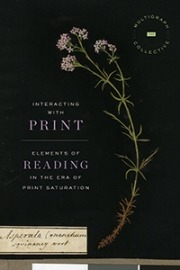
Interacting with Print: Elements of Reading in the Era of Print Saturation
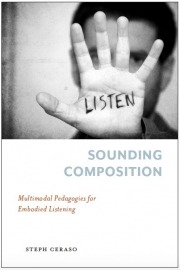
Sounding Composition: Multimodal Pedagogies for Embodied Listening

Credulity: A Cultural History of US Mesmerism

Hothead: A Poem
The Norton Shakespeare (Third Edition)
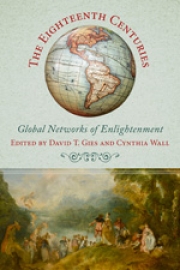
The Eighteenth Centuries: Global Networks of Enlightenment

Four Revenge Tragedies of the English Renaissance

Ben Jonson and the Roman Frame of Mind

English Renaissance Drama: A Norton Anthology
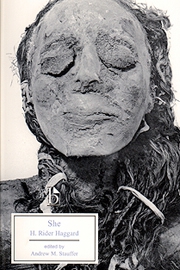
She: A History of Adventure
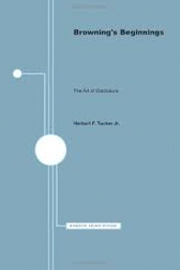
Browning's Beginnings: The Art of Disclosure
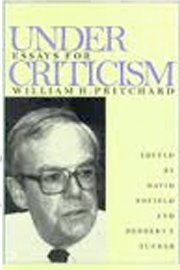
Under Criticism: Essays in Honor of William H. Pritchard
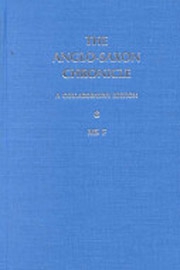
The Anglo-Saxon Chronicle: A Collaborative Edition, vol. 8: MS. F
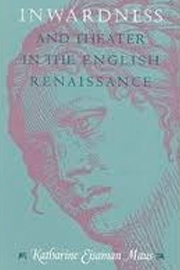
Inwardness and Theater in the English Renaissance

Seeing Together: Friendship Between the Sexes in English Writing, from Mill to Woolf
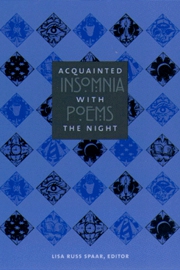
Acquainted With the Night: Insomnia Poems
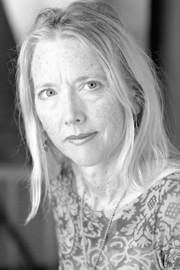
Rhetorical Thought in John Henry Newman
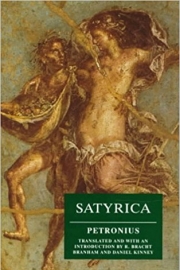
Petronius’ Satyrica
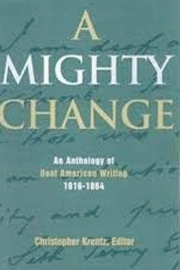
A Mighty Change: An Anthology of Deaf American Writing 1816-1864

The Cambridge Companion to Modernism: Edited by Michael Levenson
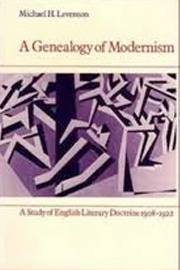
A Genealogy of Modernism: A Study of English Literary Doctrine, 1908-1922

Towards Reading Freud: Self-Creation in Milton, Wordsworth, Emerson, and Sigmund
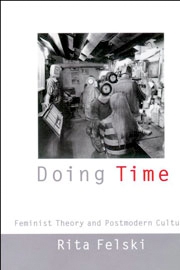
Doing Time: Feminist Theory and Postmodern Culture
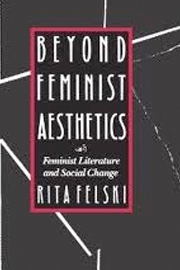
Beyond Feminist Aesthetics: Feminist Literature and Social Change

Rhetorical Investigations: Studies in Ordinary Language Criticism
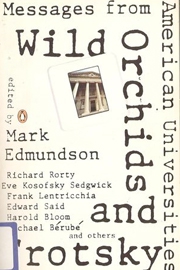
Wild Orchids and Trotsky: Messages from American Universities
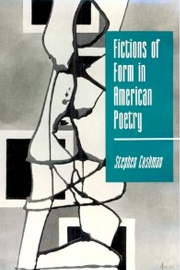
Fictions of Form in American Poetry

William Carlos Williams and the Meaning of Measure
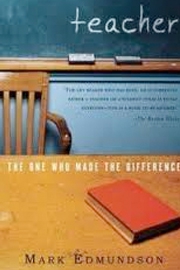
Teacher: The One Who Made the Difference

Through the Ivory Gate
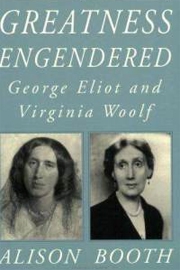
Greatness Engendered: George Eliot and Virginia Woolf
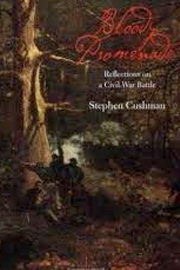
Bloody Promenade: Reflections on a Civil War Battle
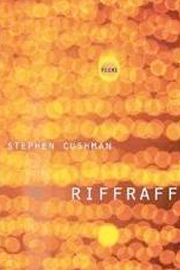
Cussing Lesson
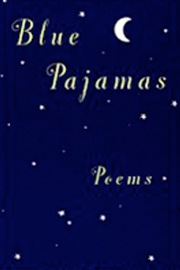
Blue Pajamas
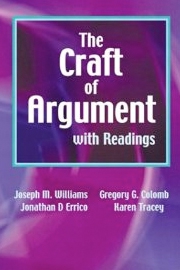
The Craft of Argument

Selected Poems
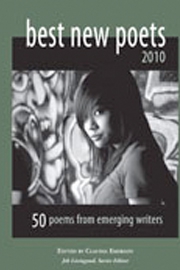
Best New Poets 2010

The Rape of the Lock

Concise Companion to the Restoration and the Eighteenth Century

Rhetorical Invention and Religious Inquiry: New Perspectives

Music, Body, and Desire in Medieval Culture: Hildegard of Bingen to Chaucer
The premodern condition: medievalism and the making of theory.
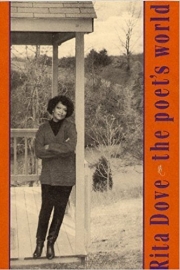
The Poet's World
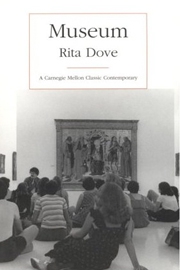
Lady Freedom Among Us
Evening Primrose: Selected Poems
Blind Boy on Skates: Poems

The Land of Wandering: Exquisite History, Volume 1
Critical Essays on Alfred Lord Tennyson

Victorian Literature 1830-1900

Robert Browning's Poetry

The Penguin Anthology of Twentieth-Century American Poetry

The Pilgrim's Progress: Editor, the Norton Critical Edition of John Bunyan
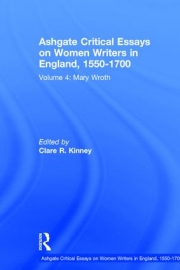
Ashgate Critical Essays on Women Writers in England, 1550-1700 Volume 4 Mary Wroth: Edited by Clare R. Kinney
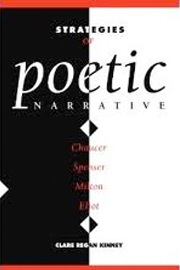
Strategies of Poetic Narrative: Chaucer, Spenser, Milton, Eliot
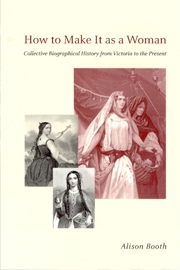
How to Make It as a Woman: Collective Biographical History from Victoria to the Present

American Smooth

Modernism and the Fate of Individuality
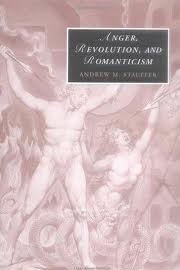

Imagining Our Americas: Nation, Empire, and Region
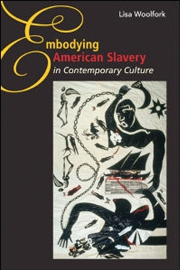
Embodying American Slavery in Contemporary Culture: A unique study of slavery reenactments and performances in African American literature and culture
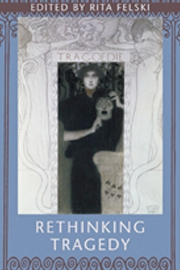
Rethinking Tragedy
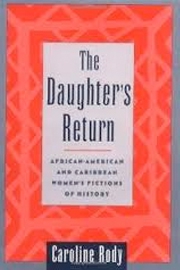
The Daughter’s Return: African-American and Caribbean Women's Fictions of History
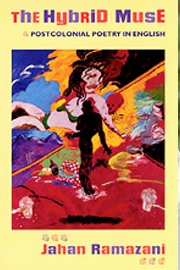
The Hybrid Muse: Postcolonial Poetry in English
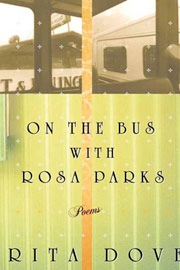
On the Bus with Rosa Parks

Nightmare on Main Street: Angels, Sado-Masochism, and the Culture of Gothic
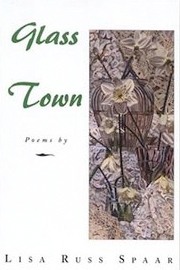
Glass Town: Poems
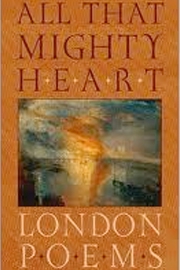
All That Mighty Heart: London Poems: London Poems
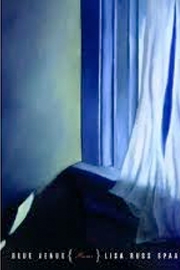
Blue Venus: Poems

Sonata Mulattica
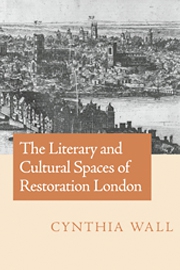
The Literary and Cultural Spaces of Restoration London

Mother Love: Poems

The Darker Face of the Earth

The Best American Poetry 2000
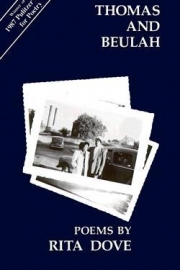
Thomas and Beulah

Fifth Sunday
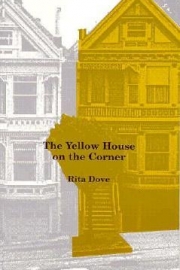
The Yellow House on the Corner

The Wonder: A Woman Keeps a Secret
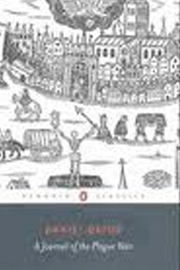
A Journal of the Plague Year : Editor
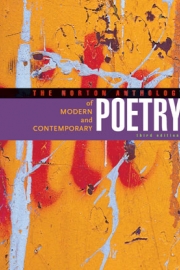
The Norton Anthology of Modern and Contemporary Poetry, 3rd ed.

The Norton Anthology of English Literature, 8th and 9th eds.

Yeats and the Poetry of Death: Elegy, Self-Elegy, and the Sublime

Poetry of Mourning: The Modern Elegy from Hardy to Heaney

Grace Notes

Vanitas, Rough: Poems

Boredom: The Literary History of a State of Mind
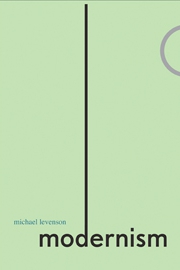
The Princeton Encyclopedia of Poetry and Poetics: Fourth Edition
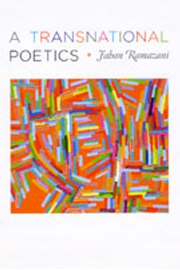
A Transnational Poetics

The Interethnic Imagination: Roots and Passages in Contemporary Asian American Fiction
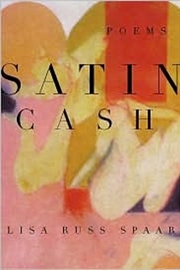
Satin Cash: Poems
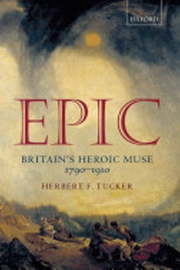
Epic: Britain's Heroic Muse 1790-1910

Neomedievalism, Neoconservatism, and the War on Terror

The Prose of Things: Transformations of Description in the Eighteenth Century

The Genius of Democracy: Fictions of Gender and Citizenship in the United States
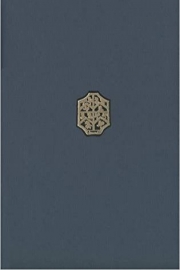
The Complete Works of St. Thomas More, vols. 3/2 (last third) and 15 = More's controversy with Germain de Brie (Brixius); In Defense of Humanism (humanist letter-essays); and The History of King Richard III

Heart Island

The Fine Wisdom and Perfect Teachings of the Kings of Rock and Roll
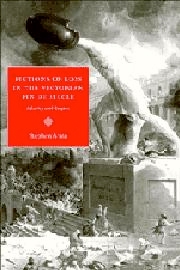
Fictions of Loss in the Victorian Fin de Siècle: Identity and Empire
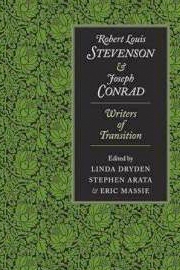
Stevenson and Conrad (co-edited with Linda Dryden and Eric Massie)

H.G. Wells The Time Machine: Edited by Stephen Arata
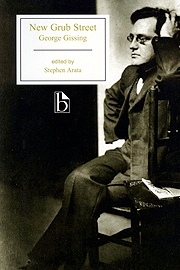
New Grub Street (George Gissing): Edited by Stephen Arata
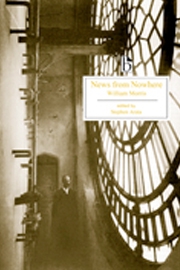
William Morris News from Nowhere
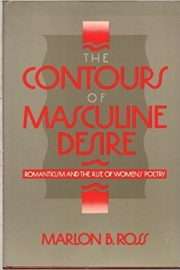
The Contours of Masculine Desire: Romanticism and the Rise of Women's Poetry

Literature Against Philosophy, Plato to Derrida
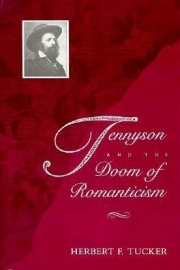
Tennyson and the Doom of Romanticism
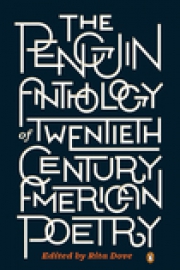
The Penguin Anthology of Twentieth-Century American Poetry: paperback edition
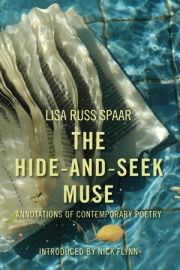
The Hide-and-Seek Muse: Annotations of Contemporary Poetry
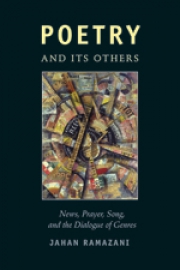
Poetry and Its Others: News, Prayer, Song, and the Dialogue of Genres
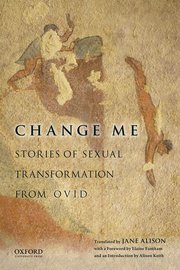
Change Me: Stories of Sexual Transformation from Ovid
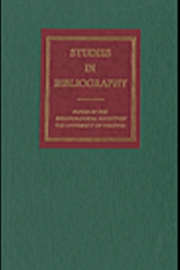
The Bibliographical Society of the University of Virginia: The First Fifty Years
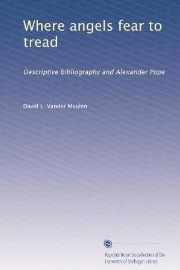
Where Angels Fear to Tread: Descriptive Bibliography and Alexander Pope
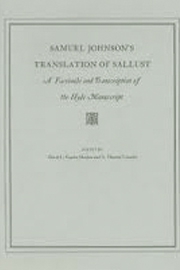
Samuel Johnson’s Translation of Sallust
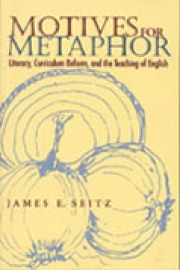
Motives for Metaphor: Literacy, Curriculum Reform, and the Teaching of English
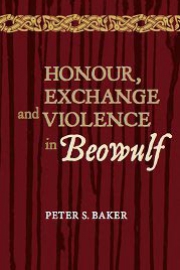
Honour, Exchange and Violence in Beowulf
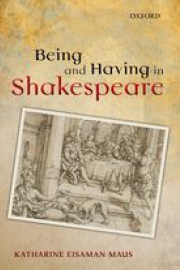
Being and Having in Shakespeare
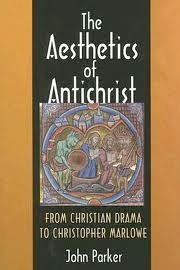
The Aesthetics of Antichrist: From Christian Drama to Christopher Marlowe

Transamerican Literary Relations and the Nineteenth-Century Public Sphere
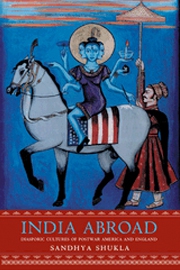
India Abroad: Diasporic Cultures of Postwar America and England

Manning the Race: Reforming Black Men in the Jim Crow Era

Leaving Pipe Shop: Memories of Kin
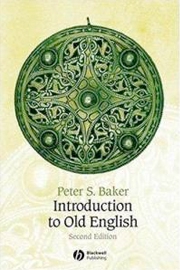
Introduction to Old English

The Norton Anthology of English Literature: Edited with Stephen Greenblatt et al

Byrhtferth's Enchiridion
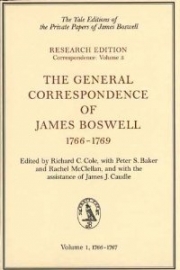
The General Correspondence of James Boswell, 1766-1769

The Essential Wayne Booth: Edited and with an Introduction by Walter Jost

The Blackwell Companion to the Philosophy of Literature: co-edited with Garry Hagberg
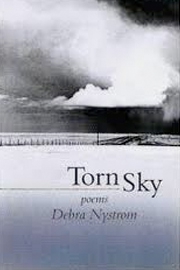
The Punitive Turn: New Approaches to Race and Incarceration
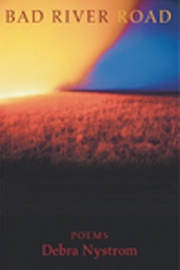
Bad River Road

"The Changing Same": Black Women's Literature, Criticism, and Theory

A Companion to Rhetoric and Rhetorical Criticism
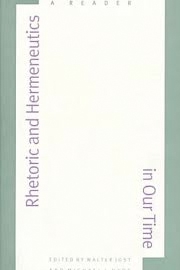
Rhetoric and Hermeneutics in Our Time

Hlóþwíg Carroll : Æðelgýðe Ellendǽda on Wundorlande, trans.
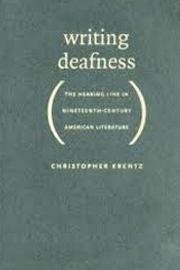
Writing Deafness: The Hearing Line in Nineteenth-Century American Literature
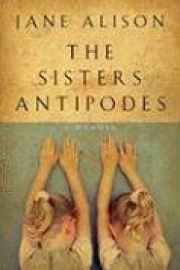
The Sisters Antipodes: (memoir)

Natives and Exotics: A Novel
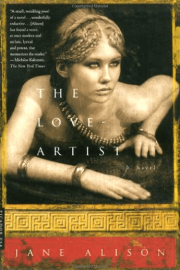
The Love-Artist: A Novel
Literary character: the human figure in early english writing.
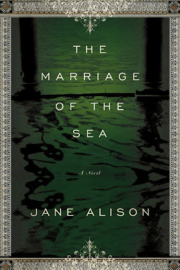
The Marriage of the Sea: A Novel

A Burnable Book
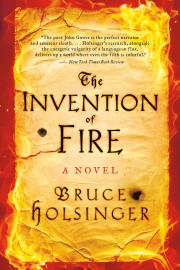
The Invention of Fire
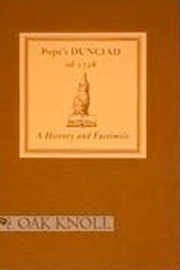
Pope’s DUNCIAD of 1728: A History and Facsimile
![uva creative writing contact MOSQUITOES [by William Faulkner]](https://english.as.virginia.edu/sites/default/files/styles/publication_crop__180x250_/public/vander2.jpg?itok=GThOGUy6)
MOSQUITOES [by William Faulkner]: A Facsimile and Transcription of the University of Virginia Holograph Manuscript
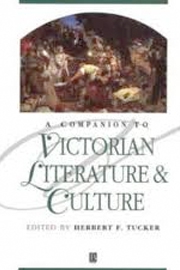
A New Companion to Victorian Literature and Culture
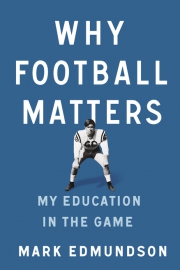
Why Football Matters: My Education in the Game

Why Teach?: In Defense of a Real Education

Belligerent Muse: Five Northern Writers and How They Shaped Our Understanding of the Civil War
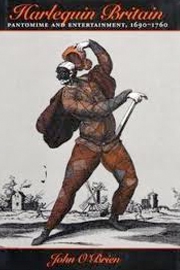
Harlequin Britain: Pantomime and Entertainment
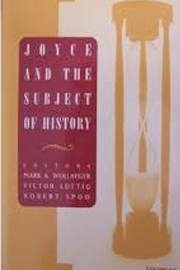
Joyce and the Subject of History
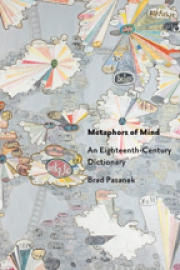
Metaphors of Mind: An Eighteenth-Century Dictionary

In Stereotype: South Asia in the Global Literary Imaginary
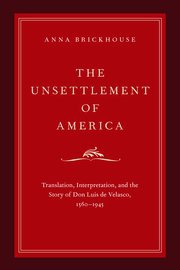
The Unsettlement of America: Translation, Interpretation, and the Story of Don Luis de Velasco, 1560-1945
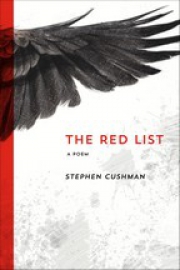
The Red List: A Poem

Eighteenth-Century Genre and Culture: Serious Reflections on Occasional Forms: Essays in Honor of J. Paul Hunter

The Humanities and Everyday Life

The Death of Sigmund Freud: The Legacy of His Last Days
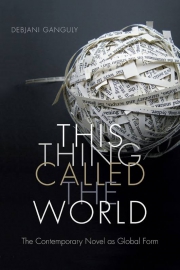
This Thing Called the World
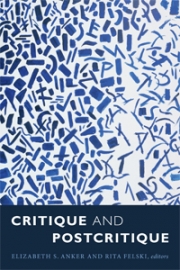
Critique and Postcritique

Literature after Feminism

The Gender of Modernity
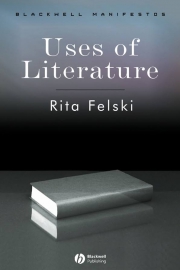
Uses of Literature
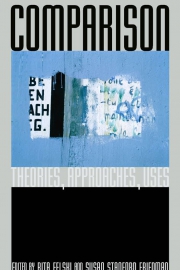
Comparison: Theories, Approaches, Uses
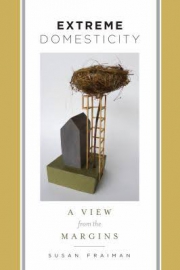
Extreme Domesticity: A View from the Margins

Cool Men and the Second Sex

Unbecoming Women: British Women Writers and the Novel of Development

Orexia: Poems

Shantytown, U.S.A.: Forgotten Landscapes of the Working Poor

The Heart of the Humanities: Reading, Writing, Teaching
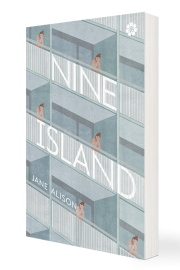
Nine Island
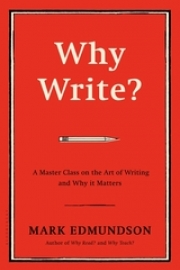
Why Write?: A Master Class in the Art of Writing and Why It Matters

Homes and Haunts: Touring Writers' Shrines and Countries
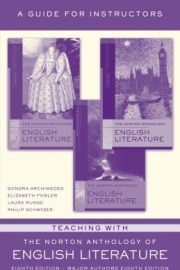
Teaching with the Norton Anthology of English Literature: A Guide for Instructors
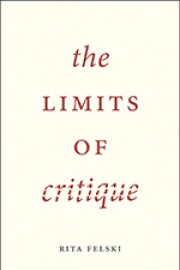
The Limits of Critique
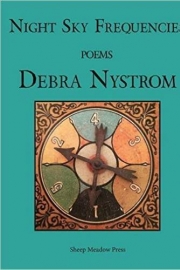
Night Sky Frequencies and Selected Poems
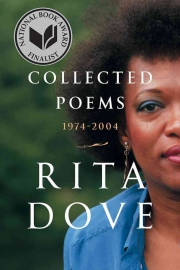
Collected Poems: 1974-2004
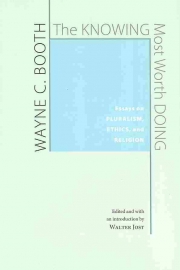
The Knowing Most Worth Doing: Essays on Pluralism, Ethics, and Religion
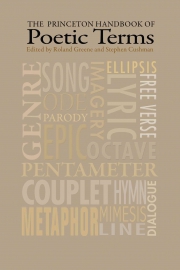
The Princeton Handbook of Poetic Terms
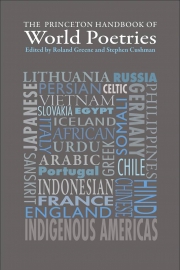
The Princeton Handbook of World Poetries

Monticello in Mind: Fifty Contemporary Poets on Jefferson
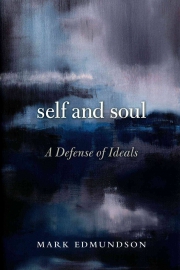
Self and Soul: A Defense of Ideals
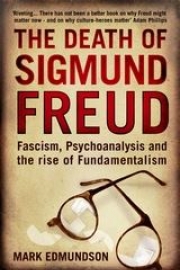
The Death of Sigmund Freud: Fascism, Psychoanalysis and the Rise of Fundamentalism

Song: special issue of NLH
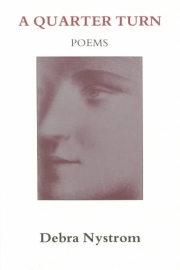
A Quarter Turn
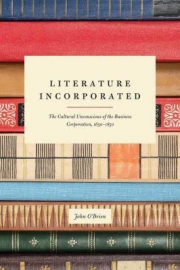
Literature Incorporated: The Cultural Unconscious of the Business Corporation, 1650-1850
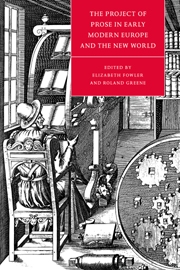
The Project of Prose in Early Modern Europe and the New World
More Publications
Friday, January 17th
- Where : Bryan Hall Faculty Lounge
- Start time : 12:00pm
- End time : 01:00pm
Friday, January 24th
- Where : New Dominion Bookshop 404 E Main St, Charlottesville, VA 22902, United States
- Start time : 07:00pm
- End time : 08:00pm
Friday, January 31st
Wednesday, February 5th
- Start time : 05:00pm
- End time : 06:00pm
Friday, February 7th
More Events
On Being a Writer: Conversations with UVA Creative Writing Students

When I was in first grade, I wished for the first time to be a writer. I pictured holding a book and running my finger over my name in embossed text on the cover of a pristine book jacket. As I got older, I began to feel uncertain. How do you know whether or not being a creative is even for you? How do you carve out a space for yourself as a writer and avoid feeling like an imposter in a world full of talented and creative people?
Wondering if other prospective authors carried the same weight of these questions, I sat down with two students in UVA’s creative writing department to understand what draws them to the craft and who they are as writers.
Let’s start with introductions! Tell me a little bit about yourself and what you wanted to be growing up?
Lauralee Weinland (she/her): My name is Lauralee, I am a third year English major with a concentration in poetry writing. You know, I actually called my mom and asked her this morning [if she could remember what I wanted to be when I was little], because I couldn't remember. She couldn't remember either. So I don't think I ever really dreamed about labor…. I think I just wanted to be a princess or a doctor. But because I wanted to live the doctor lifestyle, not so much because I actually wanted to be a doctor.
Sydney Sallinger (she/her): I am Sydney Sallinger. I am a third year at UVA and I am a double major in Media Studies [and English]. I'm hoping to concentrate in film for Media Studies and in English I’m in the Area Program in Literary Prose. As for what I wanted to be when I grew up, it was a weekly revolution of things. But I kind of settled into wanting to be an author fairly early. I had an assignment in third grade where we had to write a fake letter to a fake friend. [When] I started writing it, I realized, “Hey, this is kind of fun.”
Can you tell me more about how or when you decided or realized that you wanted to pursue writing as a career?
Sydney: I kind of jumped in and out of wanting [to be a writer] for a while because the first thing that people say when you're a kid and you want to be a writer, is “So what's your backup plan?” For a while, writing was sort of my backup plan, just a hobby. Then I hit sophomore year in high school, and I realized that this was genuinely what I wanted to do with my life. I had been writing recreationally for a while, and I started handwriting books. I fell in love with [the art of writing] all over again. That was when I solidified in my brain that I was going to get a book published at some point in my life, and I would like to do that for the rest of my life.
Lauralee: Actually, it was my first year ENWR, I had this really great professor Michelle [Gottschlich], who took an interest in my writing in particular and encouraged me to continue with it. I came into UVA as a politics major, but that ended up not really fulfilling my passion as much as my creative writing classes did. So I ended up following those courses. Now I'm here.
And I feel like I should say, for the record, that we had the same ENWR professor and she's really awesome. We gushed about her all the time; she was just so magnetic. Can you speak a bit more about what else drew you to writing?
Lauralee: I don't think I've ever not written. I look back through my childhood diaries, and it's filled with just the most melodramatic [entries]. Everything that I thought in a day, I would just have to write down to process and feel it through. I'm driven by [emotion]. Also there’s the drive to just tell my story, I think everyone has a story. I love when I read something that I can relate to a lot, it makes me feel so valid. So I try to do that for other people as much as I can.
In my opinion, every writer is influenced by the stories and people who came before us. Who would you say is your biggest inspiration or influence as a writer?
Lauralee: Honestly, a lot of the UVA graduates and creative writing-sphere people [inspire me] like Lisa Spaar, she's incredible. Brian Teare is fantastic. Rita Dove, obviously. People like
Michelle Gottschlich. Hannah Loeb—I had her as a TA and she was also fantastic. People that I can talk to and get to know on a little more personal level tend to inspire me more than people like Emily Dickinson, who's fantastic and awesome, but I can't ever probe her brain about her work.
Sydney: This is so cheeseball of me. But in the last couple years my dad has really become a big inspiration to my writing, because he's the reason I read so much as a kid. He's the reason I read so much as an adult. He's an English teacher.
I remember my first year at UVA coming home for winter break, sitting in the car, with my dad and confiding, “I don't know what I want to do.” He told me, “Sydney, I don't know why you wouldn't just keep trying to write and trying to be creative,” which is why I'm now in Media Studies and looking at film. In the last two or three years he has really buckled down in support of me writing as a career. It's been really, really cool to have somebody actually in my corner saying, “There is no backup plan. This is the plan.”
Your “plan” involves studying creative writing here at UVA. How has being in the APLP/APPW program affected or changed the way you approach your craft?
Lauralee: I applied on a whim because I didn't think I was going to get in. I had taken an intro class and I thought, “Okay, I'll just do it. We'll see.” When I got in, I realized that…meant that [my poetry] was good and that I should probably continue. Now I find myself surrounded by a lot of really talented writers and artists all the time, which is really great for the [writing] process, because they always say the most groundbreaking things that inspire me. So I leave all of my APPW classes with a million ideas because everyone is so good.
Sydney: I think all the professors are wonderful. I think all of the people I’ve interacted with in the program so far are wonderful. I have a very interesting perspective on APLP because I’m not an academic-minded person. They’re so anti-genre fiction in academic settings. There is this idea of writing needing to be “literary,” and to me, that’s stupid, because the act of writing is literary. The fact that there’s a genre that is titled “Literary Fiction” is really ridiculous to me, and that’s what I’m supposed to be writing in the Area Program in Literary Prose. I think APLP is great, but the way that we think about and the way we talk about writing is really dismissive.
Being in APPW/APLP, you must read a lot of others’ writing. Is there any one work of literature that you’ve found to be particularly meaningful or impactful, either to yourself as a person or as a writer?
Lauralee: I would probably say Mrs Dalloway, Virginia Woolf, which is such an English major answer. But, I always loved the way that she took something so mundane and a very uninteresting day, and made it into this beautiful, 250 page story that you could read over and over again and always find something new.
Sydney: The book that has had the greatest impact on me is The Book Thief. I read The Book Thief by Markus Zusak with my dad, out loud, sitting on the floor of my bedroom when I was 10 or 11, which is a really young age to be reading such an intense book. I think reading aloud gives a different experience because as much as we have switched to a written tradition, I do think [the] oral tradition is still a core part of who we are as human beings. I think there's a lot of value in reading aloud and listening to things being read to you. Experiencing it with another person versus experiencing it alone. That's why The Book Thief had such a heavy impact on me.
Being surrounded by amazing writers and works of literature in APPW/APLP, do you ever have feelings of doubt or imposter syndrome about being a writer? How do you deal with these feelings?
Lauralee: Oh, all the time! I think it's kind of part of the writing process. I feel like everybody has those days where you read a Rita Dove poem, and you think, “how am I ever going to be that good?” Or you encounter something that's so beautiful and insane [and think to yourself], “How do you recreate that? How do I do that? Will I ever be that good?” But I think it's important to recognize that everyone has their own unique writing styles, and you just [have to] write about what makes you tick.
Sydney: Do you know how to avoid feeling like an imposter? I still feel like an imposter in my writing all the time. Dealing with writer's block, doubts, and imposter syndrome, I think, is a part of being a writer. As for dealing with them, I deal with them very poorly. I usually stop [writing], which is not healthy for somebody who wants to do this as a career. I think talking to other people and getting other people to read my writing is a way to keep myself motivated.
While we all feel like imposters at least some of the time, can you tell me about a time, maybe the first time, when you were really proud of something that you wrote?
Sydney: I don't know. I think I'm proudest whenever I finish a project. I think it may have sucked and it might have been one of the worst things I've ever done, but finishing that first draft of a novel for the first time. It was amazing. It was incredible. There's no feeling like looking at something and going, this isn't finished, but it's finished. This is all it can be. Now time to move on to the next thing. I think those are the moments that I'm proud of.
Lauralee: For my English 3001 class, we had our first assignment that was really long and really daunting. I chose the creative option, which was to recreate Beowulf. It had to be 2000 lines or something crazy and you had to do it in the Beowulf alliterative, accentual style. So I spent three days just doing that during fall break, cooped up my apartment, and I grinded it out. After I turned it in, I reread it and I thought, “Oh, this is really good.” I kind of don't remember doing it because I was in a rush to get it done. I sent it to my poetry professor who the assignment wasn't for, and she told me, “This is unironically, the best poem I've read all year.” And I thought, I guess it's good.
So it seems like writing for you, Lauralee, is a really engrossing experience. Can you tell me about your headspace or how writing makes you feel?
Lauralee: I think translating my emotions onto a page is a very validating experience in itself, being able to name what I'm feeling and put it on paper and have to share it with people in a way that makes sense. And hopefully they can relate to it. I don't know, it's just a drive that kind of comes from reading great literature or reading great poetry and then wanting to do that myself, because of the way it made me feel. You know, the Emily Dickinson quote about the top of your head being blown off by poetry, and that's how you know it's a poem. That's what I want to make people feel. And that's also how I feel.
Given that it can often be an isolating, engrossing practice, could you tell me a bit about any communities you have found through writing?
Lauralee: I didn't know anyone going [into APPW]…. I feel like at UVA, it's easy once you get into your third or fourth year to kind of separate into your group. If you're involved in Greek life like I am, you kind of separate off into that and quit interacting with other people. So that's been really nice to expand into a universe where people are as passionate about this thing as I am.
Sydney: I always say that the stereotype of writers and some of those portrayals of famous writers, ironically like J.D. Salinger, are some of the worst portrayals of writers because I don't think you can write anything worthwhile unless you are constantly interacting with other people and seeing how the world changes and evolves around you.
I'd recommend taking classes. Or if you're trying to just write recreationally, I would 100% recommend fanfiction, which might be an out-there suggestion for a lot of people, but is a great way to build a writer's community. Here at UVA, I'm actually a part of a brand new writing club. If anybody wants to join, it's called Hoos Writing. We started to put something together last semester and now we're a CIO. But yeah, classes, clubs, and online.
You’ve listed some ways to get involved in communities for writing, do you have any other advice for people who are just starting out as writers?
Lauralee: Keep writing. It's really hard when you're writing to not judge yourself as you're doing it. There are so many times where I write a line and I think, “Wow, that's terrible.” But it's important not to delete those lines immediately, because they could turn into something so beautiful. Keep trying new things. If it's not good, that's okay. It doesn't have to be. And, you know, if it's not your best work, it doesn't mean that it's not important or valuable.
Sydney: The advice is to just fucking do it. The “fucking” is necessary there. It's so important to actually write. Some people will tell you that thinking about writing counts as writing—it doesn't. The act of writing is important. Anybody that is interested in writing should just do it. You don't need to be a Pulitzer Prize winning novelist to be a writer. The second you start putting words to a page, you are a writer and you are an author. Advice I see all the time is to keep a journal. Words on a page are always valuable, even if it's just for you.
Finally, I’m always looking for new book recommendations, and who better to get a recommendation from than a creative writing student! So what should I read next?
Lauralee: Yes, I'm currently reading Her Body and Other Parties by Carmen Maria Machado. She is just the most brilliant, beautiful writer, ever. She also has a book called In the Dream House, which is about a queer abusive relationship and it's told in like half poetry-half prose vignettes. They're beautiful. I mean, they're devastating, but she is stunning. She’s an on-the-rise writer and I would recommend for everyone to read her work.
Sydney: I think anything by Khaled Hosseini is fantastic. He did The Kite Runner, A Thousand Splendid Suns, and other stuff. But those are the two that I've read and they are fantastic—super impactful. I recommend The Book Thief to absolutely everybody. If you're looking for a short story collection, for class last year, I chose to read Interpreter of Maladies by Jhumpa Lahiri, and it was fantastic. [It’s a] beautiful analysis on love and loss and connection. [Also,] Perks of Being a Wallflower —one of the best books I think ever written. I could go on for hours but I'm gonna stop there.
More Like This
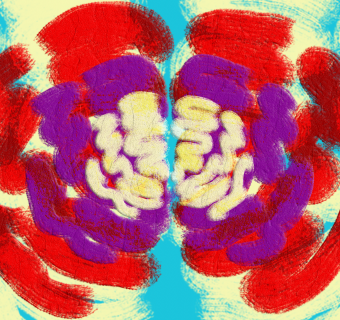
“It’s Very Distant”: Men’s Mental Health at UVA
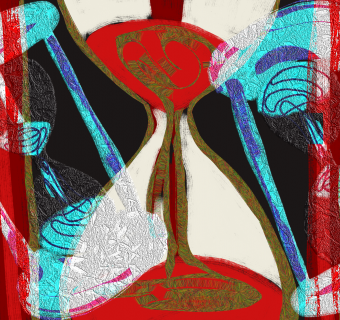
I'm (We're) Tired.
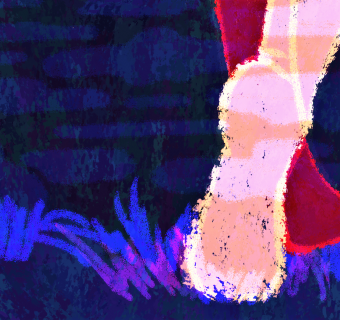
Sfumato: Vanished Gradually like Smoke
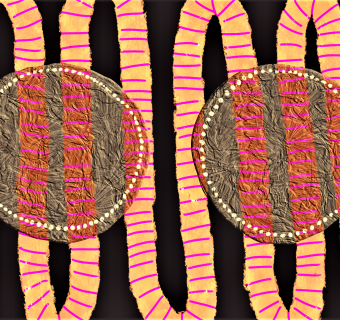
A Penny for Hope
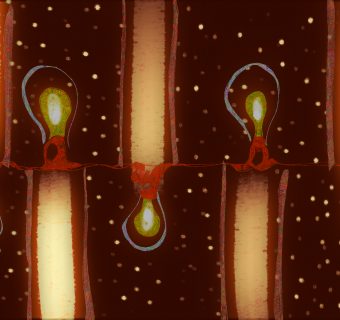
Savoring My Cosmic Latte

IMAGES
VIDEO
COMMENTS
You can email our program at [email protected] or call 434-924-6074. Our mailing address is UVA Creative Writing Program PO Box 400121 Charlottesville, VA 22904-4121 Email us
The University of Virginia's Creative Writing Program offers a master of fine arts in poetry and fiction writing, undergraduate English concentrations in poetry and literary prose, and elective coursework at the undergraduate and graduate levels. If you are just beginning, we have 2000-level classes in our undergraduate curriculum that are open ...
Creative Writing. [email protected] (434) 924-6074; Website. The UVA Creative Writing Program offers one of the best MFA programs in the country, along with undergraduate English concentrations in poetry and literary prose and elective coursework. ... Contact Us: [email protected] (434) 924-3728; Footer. About UVA Arts; Leadership ...
Contact Info Phone: (434) 924-4122 Fax: (434) 924-4156 Email: [email protected] ... Creative Writing. Print-Friendly Page (opens a new window) Return to: Graduate School of Arts & Sciences: Degree Programs 219 Bryan Hall University of Virginia P.O. Box 400121 Charlottesville, VA 22904-4121 (434) 924-7105 Fax: (434) 924-1478
Associate Director of Creative Writing: Bryan Hall 422-B: 434-924-6675: Andrew Eaton: Creative Writing Program Manager: ... Contact Us. Department of English Bryan Hall 219 PO Box 400121 Charlottesville, VA 22904-4121.
© 2019 By the Rector and Visitors of the University of Virginia. Home; MFA Program. How to Apply; About Our MFA; MFA Funding; MFA Curriculum; Undergraduate CW
The University of Virginia Creative Writing Program is the home of a two-year, fully funded MFA program and undergraduate concentrations in poetry writing and literary prose. We offer creative writing courses starting at the introductory level for undergraduates on up to our graduate workshops and form of fiction/poetry classes. All of our graduate students are fully funded and our MFA Program ...
Academic and Professional Writing Program (434)924-6671 Bryan Hall 219 P.O. Box 400121 Charlottesville, VA 22904-4121
Creative Writing > Writing and Rhetoric > About Us ; People . Graduate Faculty ... UVA in solidarity with victims of anti-Asian violence; From the Modern Language Association; ... Contact Us. Department of English Bryan Hall 219 PO Box 400121 Charlottesville, VA 22904-4121.
Your "plan" involves studying creative writing here at UVA. How has being in the APLP/APPW program affected or changed the way you approach your craft? ... If you are in need of mental health help and are a current UVA student, please contact CAPS (Counseling and Psychological Services) at (434) 243-5150 during the day. ...